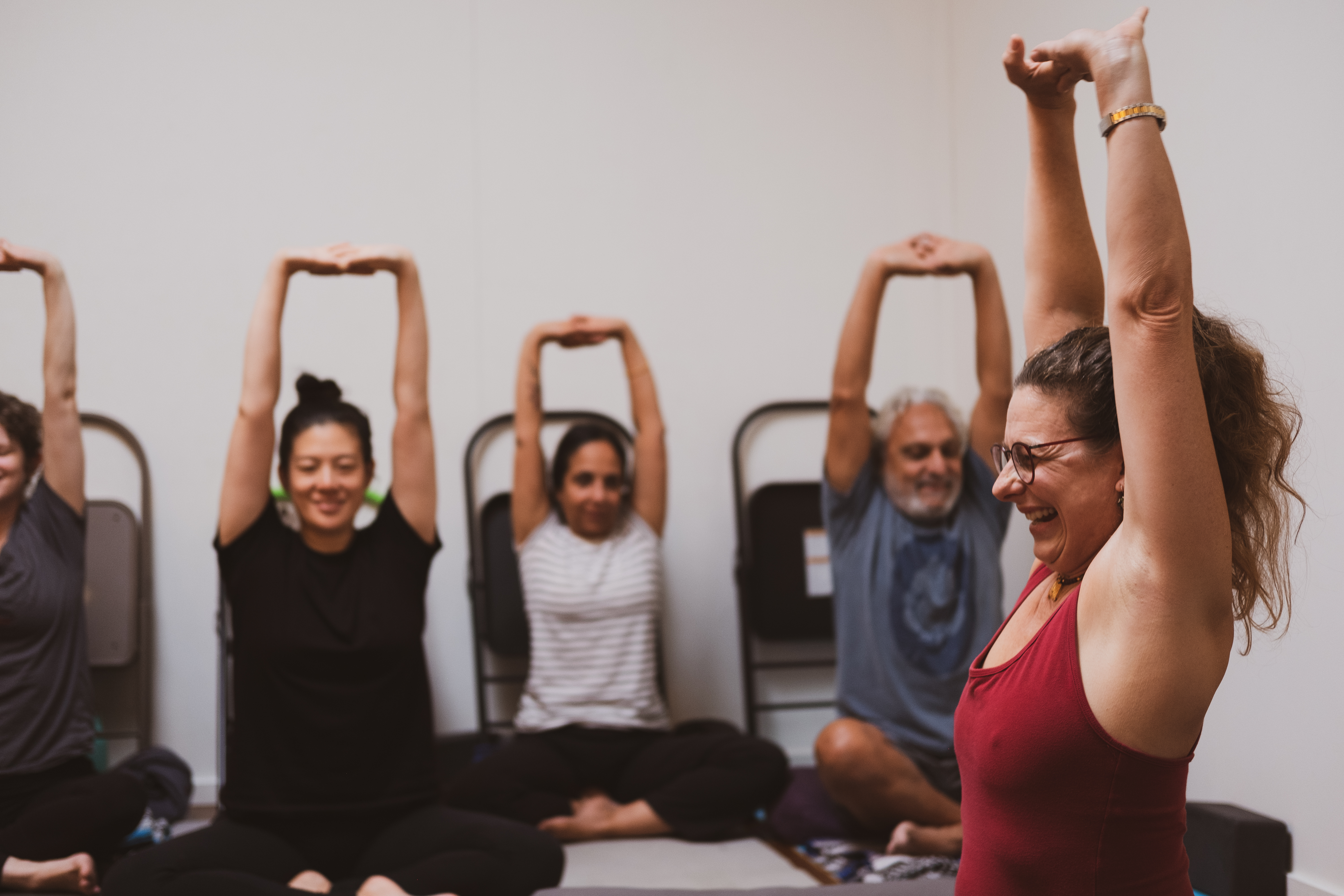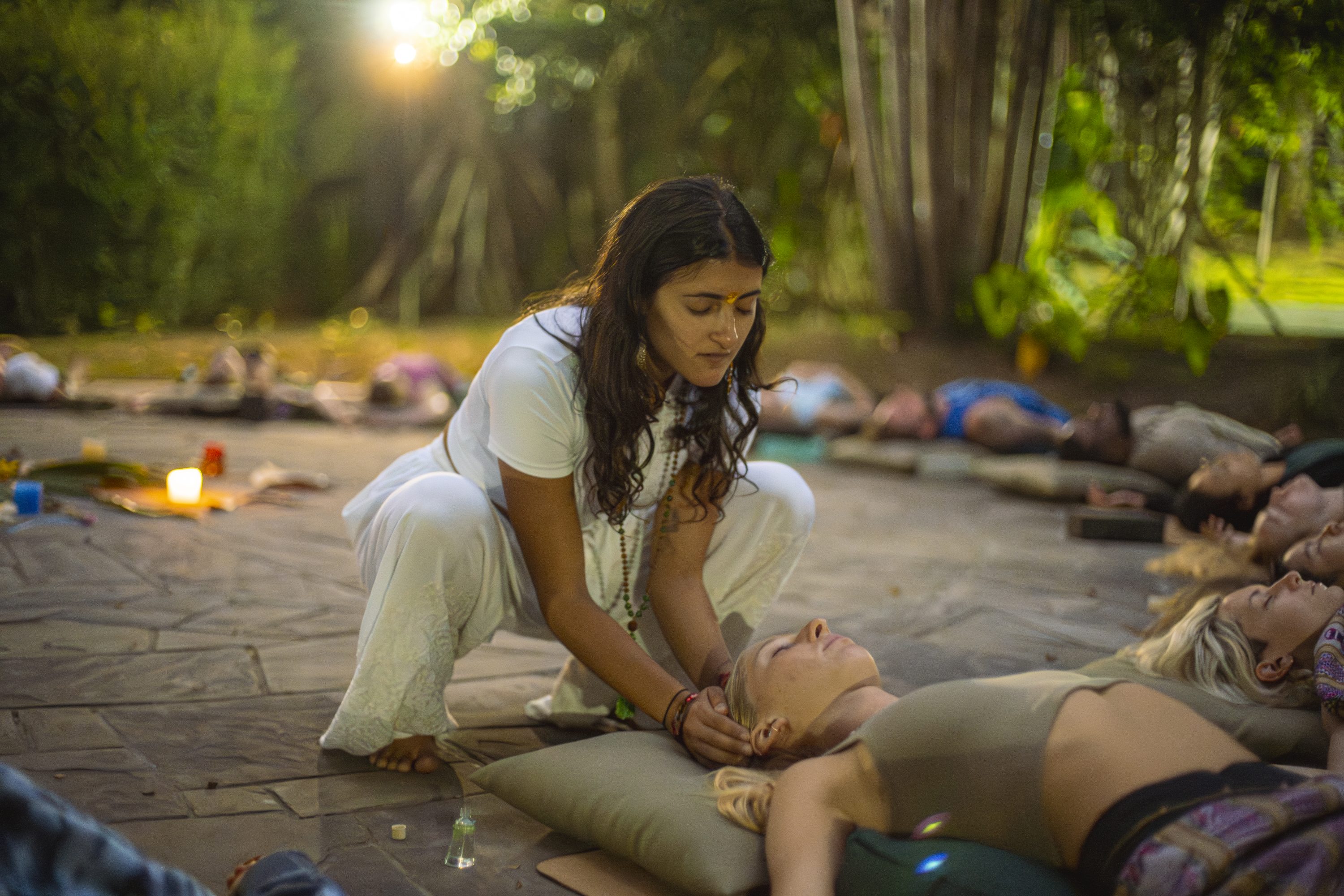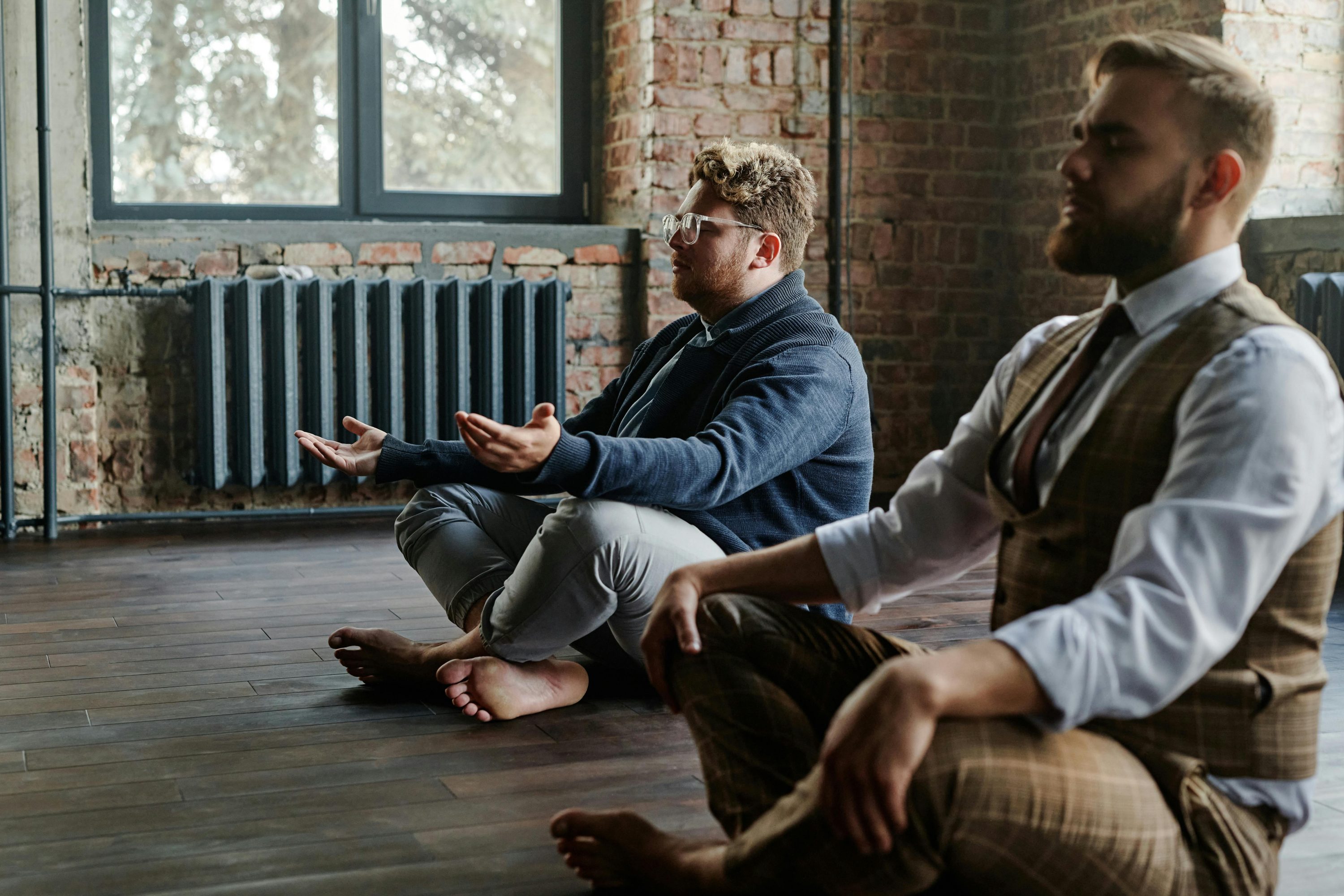Yoga has been my exercise, hobby, and side-gig for nearly my entire adult life. Through cross-planet moves, falling in love and getting my heart broken, a global pandemic (say what?!), losing loved ones and jobs, career changes, and quarter life crises — yoga has been there every step of the way. Subtly and sneakily, the teachings have pierced me. What began as a love affair with the way my body felt after a sweaty and stretchy yoga “workout” has turned into a greater understanding of how my mind and heart are able to navigate the difficult moments life has thrown at me.
What a time – right now in the midst of our mandated hibernation during COVID-19, to ground down and deepen our own practice. While so many in the world are suffering and in a state of fear, I’ve had the opportunity to dive even further into my yoga practice. Despite job losses, housemate conflicts, economic disasters, and a global moral crisis of racism and brutality, yoga has stuck with me, and me with it. Inspired by my teacher, Bhavani Maki, I’ve committed to a daily meditation practice that has significantly transformed my life and kept me grounded during the most ungrounding time of my life.
Though I’ve been studying, practicing, and teaching yoga all this time, my understanding of yoga was confused and ungrounded. Yet, thankfully, I’ve been able to begin again, with fresh eyes…

1:1 Atha yoga anushasanam
At last, we have finally arrived at this most auspicious moment. Verily, it has taken our entire lifetime to come to this point, where we accept the invitation to follow along with the process of Yoga, and smooth out the rough edges of the personality. This awakes a deep feeling of love and respect for those who walked the path before us, and shed the light that we might follow.
This is the first Yoga Sūtra of Patanjali, translated by my teacher and mentor, Bhavani Maki. Her teachings of the Yoga Sūtra have profoundly impacted my relationships to myself and to others, and supported me through a time of great transition. Both in person and online, I’ve studied yoga, philosophy, chanting, and modern day psychology with her. When I signed up for her online Yoga Sutra Mentorship Program last August (we meet weekly on Zoom) I had no idea that this would be the glue that held me together during a “stay at home” order for months of COVID-19. Deepening my understanding of the Sūtra has absolutely been a form of therapy for me, as it gives me insight into my habits and patterned behavior and shows me what I can modify, what needs to be released, and what is pure and perfect just as it is.
Bhavani is an international author and teacher of yoga asana, yoga psychology, and yoga philosophy. She has dedicated her life to learning and actualizing the path of yoga through her studies with Shri K. Pattabhi Jois, Professor Narayanacharya, Baba Hari Dass, and Rama Jyoti Vernon, among others. Although first introduced to the Yoga Sutra in 1996, she has been deeply interested since 1999. Beyond her education, experience, and accolades, she is just an absolute joy and breath of fresh air in the yoga world. She exudes a level of humility that is inspiring and makes a seemingly overwhelming and ancient text relatable to almost anyone. Read on for an exclusive interview with Bhavani about the wisdom of the Sutra and how to integrate them in modern day life:

What are the Yoga Sūtra?
The Sūtra are a map of human consciousness with practical insights in how to maximize Yogīk practice for breakthrough experiences for internal freedom to enjoy life in its fullness. Patañjali reveals that deep, personal inquiry are both the means and the experience of embodying our true spiritual realization.
What are the benefits of learning the Yoga Sūtra?
While the techniques of Yoga are well expounded upon in the West, there is little guidance offered to integrate these practices with our personal psychology. The Sūtra are traditionally recognized as the definitive guide, offering perennial wisdom in navigating life’s challenges through the cultivation of viveka khyāti, discriminating wisdom. Yoga practice without the Sūtra are like going on a road trip without a map to navigate.
What does your personal yoga practice look like?
I start each morning with Gayatri Mantra, Pranayama, Mudra, meditation and silent Japa (repetition) of the Sūtra. I then study more Sūtra and work on my current manuscript. Afterwards, I practice a variety of asana that usually includes inversions.
Is it possible to practice/teach yoga without understanding the Yoga Sūtra?
The Sūtra and the asana cannot be separated. If we are mature in our practice of awareness, we access some amount of the Sūtra through practical insight. However, one who is without a teacher and the teachings (Sūtra) is known as “anatha” – misfortunate. To have them is a tremendous blessing that galvanizes our efforts to maximize the possibilities of Yoga’s benefits.
What is your best advice for teachers to weave the teachings of the Yoga Sūtra into their classes and personal practices?
The Sūtra articulate practical wisdom. They provide a focus for intentional learning and expand perspective. A little bit of study goes a long way to being productive in our practice and creating integration and coherency in our psyche. As a teacher, when we open our class with reference to a Sūtra, we bring awareness back to Yoga’s intention of skillful internal posture.

So many yoga teacher trainings incorporate very little yoga philosophy in their teachings. How might yoga teachers supplement their education to get a deeper understanding of the philosophy behind yoga?
10 minutes of daily study can go a long way! My book the Yogi’s Roadmap can be opened and read at random like an oracle. Many teachers tell me they open it for inspiration before they practice or teach a class and weave insights into the practice.
What are your best resources/teachers for studying the Sūtra?
My personal favorites are: Rama Jyoti Vernon’s translations “Patanjali’s Yoga Sutras Gateway to Enlightenment” Books 1 & 2. Also, I love Venkateshananda’s book “The Yoga Sutra of Patanjali”. Kofi Busia has many interesting resources on his website. I offer 13 recorded talks that are live recordings from my teacher trainings. My personal book “The Yogi’s Roadmap” is written in conversational form in the spirit of mouth to ear transmission that is non-linear and in context of how the Sutra are useful in reference to Yoga practice and modern life. My most comprehensive offering to date is my Online Yoga Sutra Mentorship program that’s a live zoom class each week and recorded for those who can’t attend the live session. Each class is devoted to a single Sutra.
What is your best advice to new yoga teachers?
Teach to learn! When my teacher asked me to teach, she made me promise to study a minimum of 20 minutes daily. This is of course in conjunction with consistent practice. Choose your teachers carefully and commit to study with them for a minimum of 5 years.
So there you have it — yoga is about integration, and couldn’t we all benefit from a roadmap to help us find our true center? I’m still on the path and always will be, but with such wise mentorship and learning I’ve found ways to navigate this life with heart and integrity (or at least I try!).
To join in the movement and study with Bhavani online to take your teaching and/or practice to the next level, please visit www.bhavanimaki.com. She has several workshops, teacher trainings, classes, and mentorships all available online now.

Simone is an experiential educator who’s passion for international travel, growth, and transformation take form through photography, gap year counseling, practicing and teaching yoga, and teaching mindfulness and survival skills in the great outdoors.








